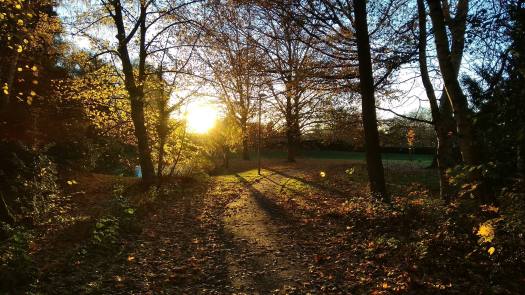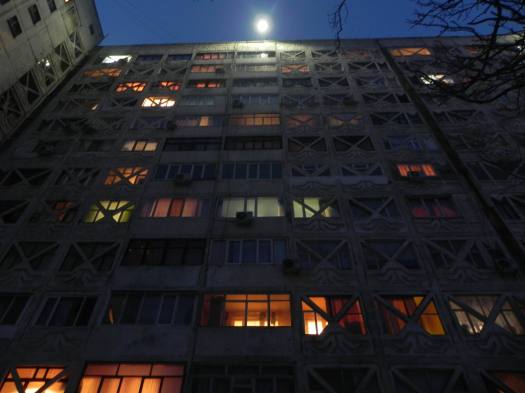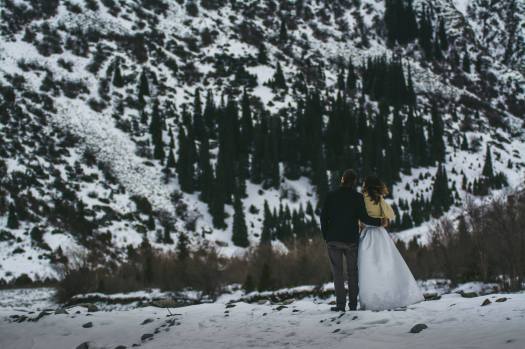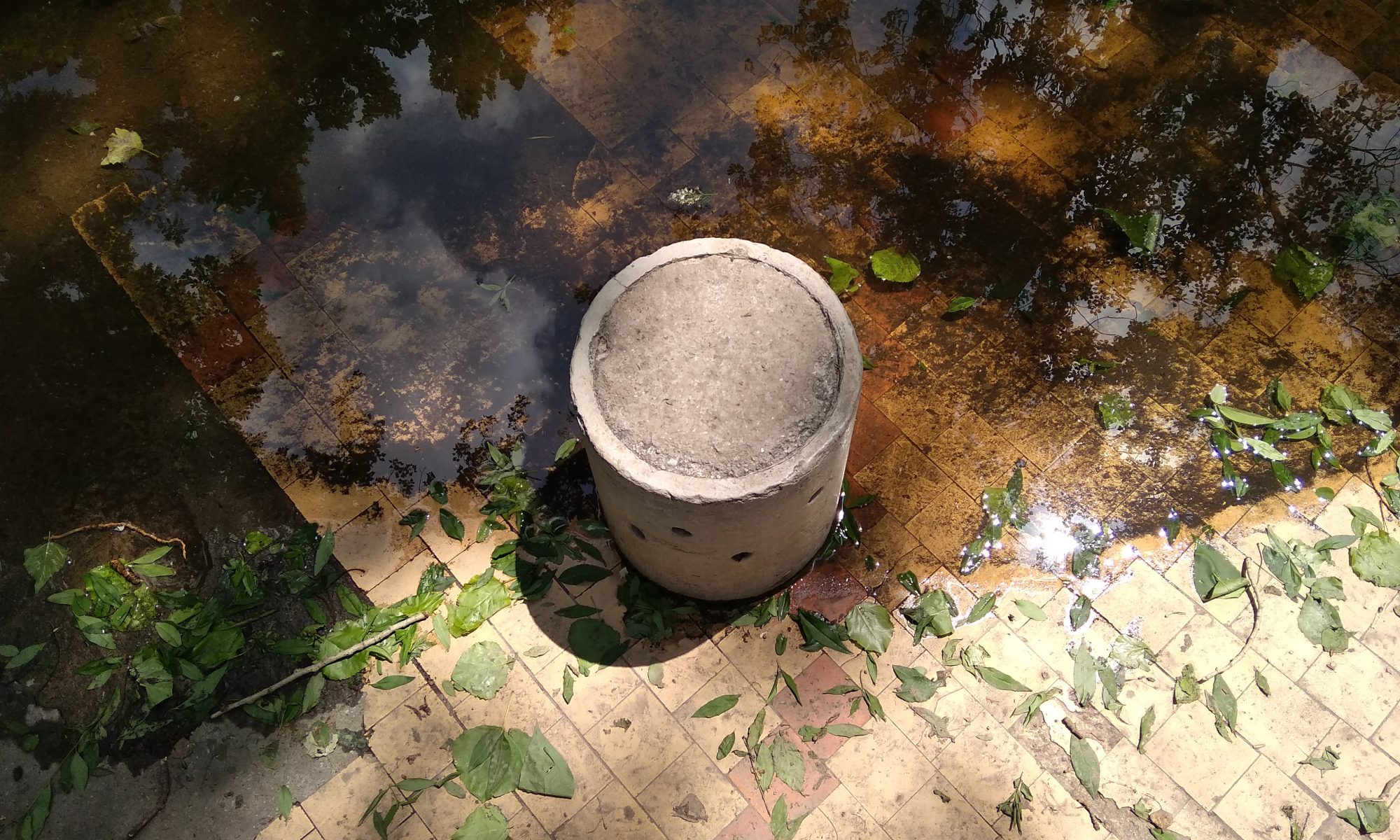
Ten years ago, I joined the Baha’i Faith. It’s peculiar, our human sense of time. A decade is a passing thought for a tree, hardly a pebble fall for a mountain, and a drop of nothingness in the vastness of the universe. Yet, as much as it is an eon for a human being, at the moment of counting it is also so so brief, a flicker of intense experience and meaning.
I’m writing this from Bishkek, which slowly slowly I have made my home. First an academic year starting in September 2013, then more permmeanently during Nawruz 2015. In between, in September 2014, I was shipwrecked in Leuven. Marooned, October 2014 was probably the lowest point in my life since May 2005. But my Robinson Crusoe moment proved a blessing in disguise: “Can our return to zero enliven again our taste for the ethos of being and its signs of transcendence?” my professor William Desmond once asked. I learned that it indeed can.
Following the advice of my dear friends Jordi and Sam, by that Halloween I had crossed the Pyrenees and was attending a mass in the halls of Roncesvalles, beginning my journey to Santiago de Compostela. The Camino unexpectedly proved to be the first of two pilgrimages during that sojourn away from Kyrgyzstan, for with the generous help of yet more dear friends, this time the Schewels, in March 2015 I was in Haifa, Akka and Bahji, praying in the Shrines of the Bab and Baha’u’llah.

Ten years. If Bishkek rises at one end of the topography of inner time, Leuven rises at the other. Shortly after becoming a Baha’i, I bought a one-way ticket from America to Europe; by September 2009 I was enrolled in the Katholieke Universiteit Leuven for my second Master’s. Save for stints here and there, including one in Prague in 2010 and two in Bishkek during 2011, I would remain in Leuven through a third Master’s, eventually enrolling in my present Doctorate when I was marooned there in 2014.
It is no secret that I used to loathe Leuven. It was, and in many ways remains, a university town of impossibly and unfairly high standards mixed with a largely feigned meritocracy. Also, my lowest blows in the arena of romance were dealt there, either to me or by me. But the truth is I loathed my own weakness in Leuven. I was running NewEurasia, often on a salary barely more than the Belgian minimum wage, sometimes on no money at all. I once shivered my way through a terrible winter in a ground floor apartment that had neither furniture nor heat. The rent was only a 100 euros a month, it was all I could afford. I felt poor, obscure, near-broken.
Bishkek was far kinder to me than Leuven; I dare say it treated me better than many of its own locals. It gave me a proper apartment (several, in fact), it gave me a career, it gave me savings, and in time, it gave me love. When I first met my wife in August 2015, I immediately intuited she would be significant; just little under a year later, I proposed to her on the shore of Lake Issyk-kul, on the spot where local folklore said Saint Matthew’s relics had been buried and lost.
Ten years. Religious conversion and marriage are strikingly similar. Both are acknowledgements of the ineffable value of another person — a Manifestation of God, an intimate lover — a value that is ultimately unique to you and you alone. Both are deep commitments to that other person, acts of will really, to sacrifice one’s freedom, to invest one’s patience and powers, to continue to give one’s trust, to aid another’s purposes over one’s own, to focus on the farther future rather than the nearer tomorrow, to build something together. And in being such future-oriented acts of will, I dare say that both are gambles, perhaps not unlike Pascal’s Wager, although more vivid, less calculating.

Faith and love, I tend to think that these are two sides of the same phenomenon. Of course, I am not the first person to sense this. Admitting that, however, if there is any slight shade of distinctiveness to how I sense the relationship, it is in this perception that the interiors of these two experiences are deeply similar, if not a singular interior.
Despite my best intentions, though, despite all my hard-won experience, I have not been the best at either faith or love. Over these ten years, I have permitted myself too often to succumb to anxiety and despair, to the point that it has affected my career, my love, sometimes even my very belief in God. In a sense, if faith and love may very well share an essential nature, perhaps anxiety and unbelief, despair and unbelief, likewise are at root the same hollowed out dead tree.
Ten years from now, I want to be commemorating my twelfth anniversary as my wife’s husband and my twentieth as a Baha’i. Of course, what I want and what will happen could very well diverge. The real question, then — to borrow Pascal’s language of gambling — is: what is the best bet to making desire reality? Rumi seems to have known the secret: “Your task is not to seek for love, but merely to seek and find all the barriers within yourself that you have built against it.”
Yes, yes, that is it. That is how I found Baha’u’llah, that is how I found my wife, whose very name means mercy, and I dare say that is how I found Bishkek. I do not know if I am to remain here in Bishkek, or back there in Leuven, or somewhere else in Central Asia or Europe. Perhaps my homeland beckons, perhaps another place I cannot even imagine. But wherever I end up, if I am to end up there as an act of faith and an act of love, then it will be because I once more opened wide the borders of my perceptions, my desires, my sense of self — opened the borders and trekked out.
It is not only about borders, though; it is also about light. Borders are lines of darkness drawn on a map, containing within them the white brilliance of entire countries. I want to let out the light that I know is already within me, an inner kingdom of light. The irony seems to be that in order to do so, beyond all the various techniques of mindfulness and psychotherapy, of breathing exercises and cognitive repairing — essentially, beyond all the techniques of will, important though these are — it may be that ultimately it is choice, that the way to let out the light is, very simply, to let out the light.

It’s been 50 years since I became a Baha’i and 30 years since I met my beloved husband. Your writing of the similarity of religious conversion and marriage is precise – and precisely right. Thank you for this paragraph.
“Religious conversion and marriage are strikingly similar. Both are acknowledgments of the ineffable value of another person — a Manifestation of God, an intimate lover — a value that is ultimately unique to you and you alone. Both are deep commitments to that other person, acts of will really, to sacrifice one’s freedom, to invest one’s patience and powers, to continue to give one’s trust, to aid another’s purposes over one’s own, to focus on the farther future rather than the nearer tomorrow, to build something together.”
Thank you for reading!
Thank you for writing this and touching soul and heart with your words. Such a beautiful story of search and restlessness, of offering up self to life’s surges fully to follow the waves of life down and up, to seek love and ever trying to remain true to yourself, and also of arrival and union. May you both find slowly more and more a sense of home inside where the waves stay intense and strong in a warm way, possibly also calm and peaceful waters, immersed in expanding light. ‘Love is the light that guideth in darkness, the living link that uniteth God with man.’
Lovely! Thank you for reading and for your comment, Marie.
Heartfelt and profoundly insightful. Thanks so much for writing this!
Thank you for reading, Peter!